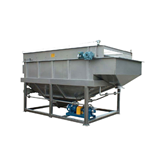As a part of the Road Reform Plan (CRRP), which was established in April 2007, the paper entitled 'Heavy Vehicle Pricing Options: Development and Assessment Framework' has presented a total of five newly modelled options – deemed more relevant to today's road user behaviours, and heavy vehicle owners.
Amongst the reform plan, the paper stated that "these pricing signals will impact the behaviour of road transport operators, freight forwarders, freight customers and road owners, in both the short run and long run."
Operators may be able to pass extra costs on to the consumer, however "if they are not passed through, due to fixed contractual arrangements or other reasons, then transport operators will have to accept lower profits, at least in the short term."
The nature of the pricings is to continue to provide road infrastructure access for heavy vehicles, whilst allowing for the road agency revenues to be collected to fund the repair costs associated. As well as this, it allows for capital to be collected, which is required for network expansion and updating.
The current pricing structure has been highly criticised due to inaccurate representation of the real world road wear, experienced based on the type of vehicle, and the nature of its route. Presently it is the summation of a fixed set of annual registration fees, along with a charge for the amount of fuel used (per litre), to average out the total usage per vehicle type.
Industry members have argued that this did not take into account several underlying factors – such as road types, vehicle weights, or the distances travelled (not as a function of fuel consumption) – allowing some operators to pay more than the actual costs required by road agencies.
Through the encouragement of more efficient use of the road network, heavy vehicle operators would be rewarded "for choosing vehicle configurations and routes that impose fewer costs."
The model options developed as alternatives to the current 'Base Case' system:
- Fuel-based distance pricing, which varies with the distance travelled and the mass carried;
- Kilometre-based distance pricing, which determines (through mandatory GPS unit installation) the total distance driven;
- Distance-location-based pricing, which uses the distance travelled along with the location;
- Mass distance-based pricing, which measures the distance travelled along with the mass of the vehicle; and
- Mass distance-location-based price, measuring the distance travelled, vehicle mass, and the location of the vehicle.
The Australian Trucking Association released its comments through a detailed response, indicating that whilst they had assessed the options based in the models, a higher level of input was required from trucking operators to more accurately provide a cross-section within the industry.
ATA chief executive Stuart St Clair stated that it was the regional and remote-area operators in particular that may be heavily impacted by some of the new plans.
"Mass-distance-location pricing could impose much higher costs on operators serving remote areas, as well as imposing enormous compliance costs on the industry as a whole," he added.
The ATA added that the changes were conditional on the "charges being calculated in an agreed, clear and transparent process, which must include the release to industry of the methodologies and data used," and that the "industry has a fundamental objection to the lack of transparency caused by the failure to release expenditure data."
St Clair urged all heavy vehicle operators to forward their comments and suggestions on to the NTC, as submissions to the discussion paper will be accepted until 14 September 2010.
To submit your suggestions to the NTC, please click here.









-160x160-state_article-rel-cat.png)






-160x160-state_article-rel-cat.png)





